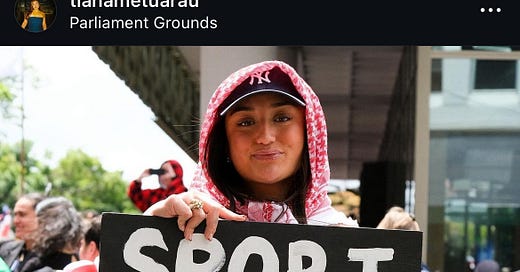Tiana Metuarau’s iconic sign from this week’s hīkoi
I have spent the last three years talking about the intersection of sport and politics. I’ve had to as the topics are so tightly wound up in each other, it’s hard to tell one story without telling the other. The sports we play, who gets to play them and who gets celebrated for doing so is all political.




